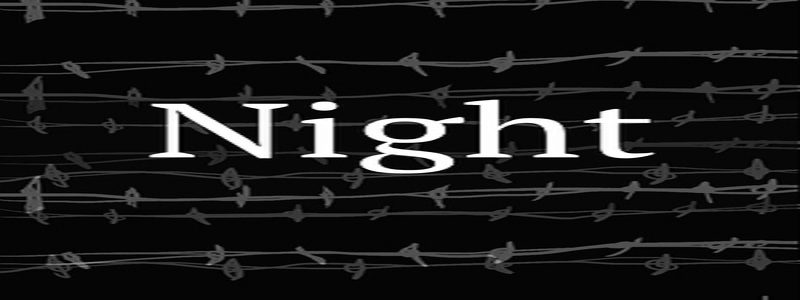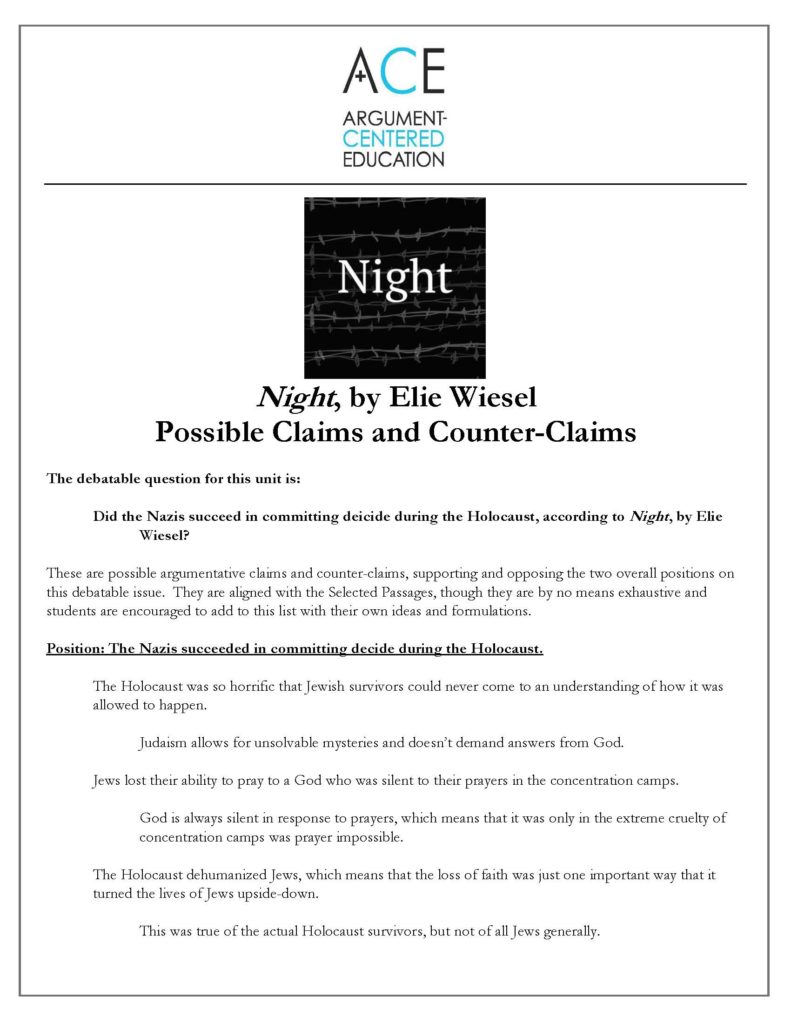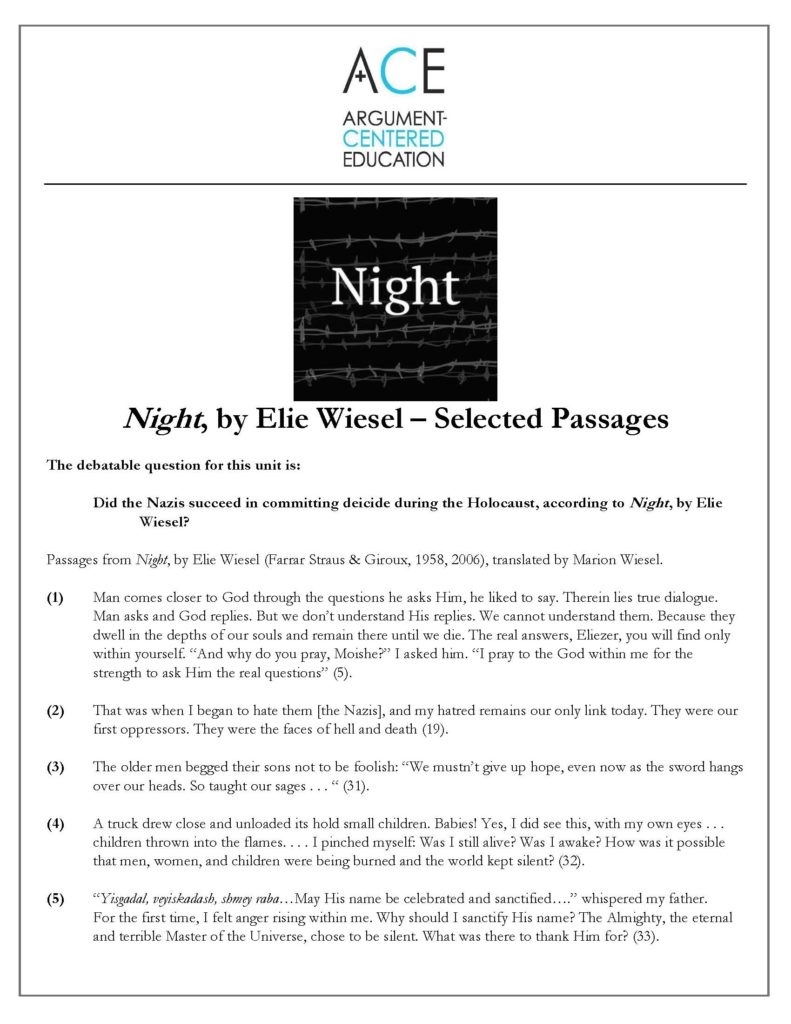
Argumentalizing ‘Night,’ Elie Wiesel’s Holocaust Memoir
Never shall I forget those moments that murdered my God and my soul and turned my dreams to ashes.
— Elie Wiesel, Night (1960)
We can take an argument-centered approach to almost any unit in the middle or high school curriculum. And we should, if we believe the empirical research on the impact of getting students discussing critically and writing argumentatively about the important topics of study in their classes. Or if we believe the standards-writers, who, as they continue to want to guide 6th – 12th grade classrooms toward global norms of rigor and authentic college/career preparation for all, continue to elevate the place of academic argument and critical thought throughout instruction.
We can even take an argument-centered approach to a unit on perhaps the most undebatable, unspeakable episode of historical evil of the 20th century, the Holocaust. Studying an extreme historical event like the Holocaust limits the range of choices but formulating a debatable question is based on the same criteria with this subject matter as it is for others. The debatable question or issue must be open, balanced, focused, and authentic. When the unit of study concentrates on a single extended text, as the one is that we’ve been working on with a couple partner schools, the debatable question must be one that is being asked by the text. A debatable question that can successfully argumentalize study of a text is one that the author is asking through the text, at some level. The debatable question that we established for Night is woven throughout the work, and surfaced explicitly in the epigraph above.
Did the Nazis succeed in committing deicide through the Holocaust, according to Night, by Elie Wiesel?
Deicide is, according to the Oxford English Dictionary, “the killing of a god.” In the context of the Holocaust and Holocaust literature, deicide is a term that can sum up the efforts by (mostly) Judaic philosophers and writers to create theodicies that can sustain Jewish theology and belief in the face of the killing of 6 million Jews by the Nazis in concentration camps — fully one-third of all living Jews at the time, and nearly 100% of the Jews living in Eastern Europe — and the genocidal intent that such mass murder attempted to realize. In the context of Night, the question can be asked this way: do believers like Wiesel come out of the camps and out of the war with their Jewish faith fully or mostly intact, or is it damaged in irreparable ways? We know that Hitler failed to exterminate the Jews as living human beings, but did the Holocaust make it impossible to believe in Judaism in quite the same way that people could previously?
We have developed a set of possible argumentative claims and counter-claims that we use with partner schools in varying ways — to present models, to give students more fully to scaffold their argument and counter-argument building, to prompt refutation activities, to assist their response to counter-arguments in their interpretive essay writing. This basic and widely adaptable resource, which we use widely in our argumentalization of units and projects, helps orient instruction and assessments on academic argument. When collaboratively created with partner teachers, it also enables them to have thought through the viable arguments and counter-arguments on both sides of the debatable issue, which is essential to teach effectively using argument pedagogy.

The claims and counter-claims are aligned with the set of selected passages that we have created that can be used by students to harvest textual evidence for their interpretive arguments. Selected Passages should always be balanced between positions; so in this instance there are eight passages that support the position that the Nazis succeeded in their efforts at deicide and eight passages that support the contrary position. The passages are all aligned with one or more claims on the Possible Claims and Counter-Claims resource. And they can be similarly used with great flexibility — from a more fully scaffolded approach that gives students the Selected Passages to analyze, discuss, and ultimately use in their arguments, to one that doles out a small percentage of them as models and instigators for more autonomous student work.

It’s worth noting that the order of our construction of these argument-centered resources was the reverse of the way they appear in this post. Arguments are built up from evidence, in the vast majority of instances. We collected a set of selected passages, balancing them between the two positions on this debatable question. Then we generated reasons to support each position — argumentative claims — that each piece of evidence would support. We then combined and condensed these possible claims into four for each side. Counter-claims are constructed by thinking critically about the weakness or flaw in an argument; they are generated in response to the argument that has already been built up (built up from evidence).

